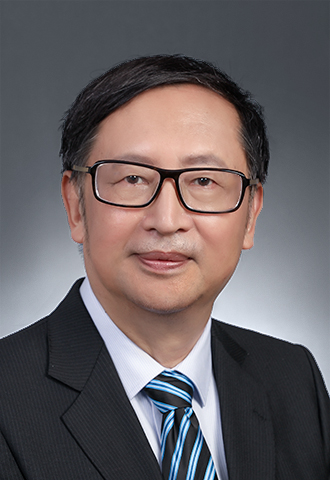-

- Yang Jiemian
- Senior Research Fellow
- Institute for Foreign Policy Studies
- Yang Jiemian: How to Look at and Deal with Security Issues in Eurasia
- Global Cultural Building in the New Context for a Community of Shared Future for the Mankind
- Reflecting on and Redefining of Multilateralism at the New Times
- International landscape roiling with changes brought by pandemic
- There Will Be No New Cold War
Since Xi Jinping’s call for establishing a new type of major power relationship between China and the US in February 2012 as then China's Vice President, various explanations and heated discussions have arisen within both the Chinese and the US academic, as well as diplomatic circles. Yang Jiemian, President at the Shanghai Institute for International Studies, brings us an inspiring and enlightening vision with his “Four News and Three Mutuals;” the core of the New Type of Major Power Relations.
As a scholar of International studies, I've watched closely since former Vice President Xi Jinping's visited the United States in February 2012, when he called for the establishment of a major power relationship in a new way. Since then we've heard many Chinese leaders expand the term and explain what it means.
If you combine all of these talks, I think there are three core meanings of the New Type of Major Power Relations:
During the US general election and China's leadership transition, China wanted very much to stabilize China-US relations. However, past experience told us that the US' election could present some changes or even setbacks in China-US relations. This time, China’s new government tried to stabilize China-US relations and even make progress, if possible. So, this is the primary and first step.
China's leadership transition has also been institutionalized, so this time Mr. Xi came into power for not one term, but two. So, this is a strategic plan for a whole decade of China's outlook on China-US relations. This is why China has talked about the New Type of Major Power Relations with an emphasis on mutual respect and win-win cooperation.
Of course, the Chinese have said a lot in their Chinese way. As a scholar, I’d like to put it into the English speakers’ context. I call it Four News: New Thoughts, New Thinking, New Code of Conduct, and New Values.
Why “New Thoughts?” Because, in the past, especially in western thinking, a rising power would inevitably come into conflict with established powers. China wants to show the world that its rise is peaceful, and China is sure that we can avoid similar historical tragedies.
As for “New Thinking,” we are living in an era of globalization and an information evolution, so we need to change our old way of thinking. We should transcend a difference in ideologies; the differences between two countries with such different histories, cultures, religions and stages of development. That is to say, we are planning what the world can be and should be in the time framework of ten years and beyond.
Both China and the United States should work out a new code of conduct. As such, we will set a new standard; with China as the largest developing country, and the US as the strongest developed country, we need to have new norms, regulations, and rules to govern our relationship.
Of course, we are two different cultures and civilizations. However, I think we are confronting new challenges with common historical callings for transnational efforts, ranging from climate change to nuclear security, etc. So, if we can have new attitudes to build up “New Values,” at least we can respect each other.
This is a Chinese vision of the New Type of Major Power Relations – it is new thoughts, new thinking, new codes of conducts, and new values.
As for “new codes of conducts,” China and the US have many shared interests and similarities, or even commonalities, however at the same time we have quite a few differences. And the most serious difficulty is the lack of strategic trust. So, if we can have a good code of conducts, then we can lessen and reduce this strategic distrust. In this way, I would say that the Chinese and the United States should have “Three Mutuals.”
The No 1. is mutual support. On important global issues, China and the US should be mutually supportive. Now that we are confronting economic challenges, we should be on the same boat in spirit, and coordinate our strategic thoughts and policies.
On the regional level, China and the US should be mutually inclusive. China respects the US’ primacy in the Asia-Pacific region; in the meantime, we hope the US should respect China as an Asia-Pacific country for our legitimate rights.
As for bilateral relations, I think, China and the US should be mutually respective. While China is a country with 5,000 years of civilization coupled with fast development in economic and social matters, and contributing a great deal to the current world's economic growth, the US, is No. 1 in the world, providing a great deal public good as well. So, we should treat each other as equals; this is very important.
There are is a different way of thinking, or ways of thinking, between our two countries. China maybe has a long term way of thinking, whereas the US emphasizes the here and now. So when we talk about strategic thinking, the US likes to show how it works now. That’s the difference. As long as we bear in mind the “Four News and Three Mutuals,” we can establish a healthy and constructive New Type of Major Power Relations, and avoid the historical tragedies between a rising power and an established power.
Source of documents:chinausfocus.com
